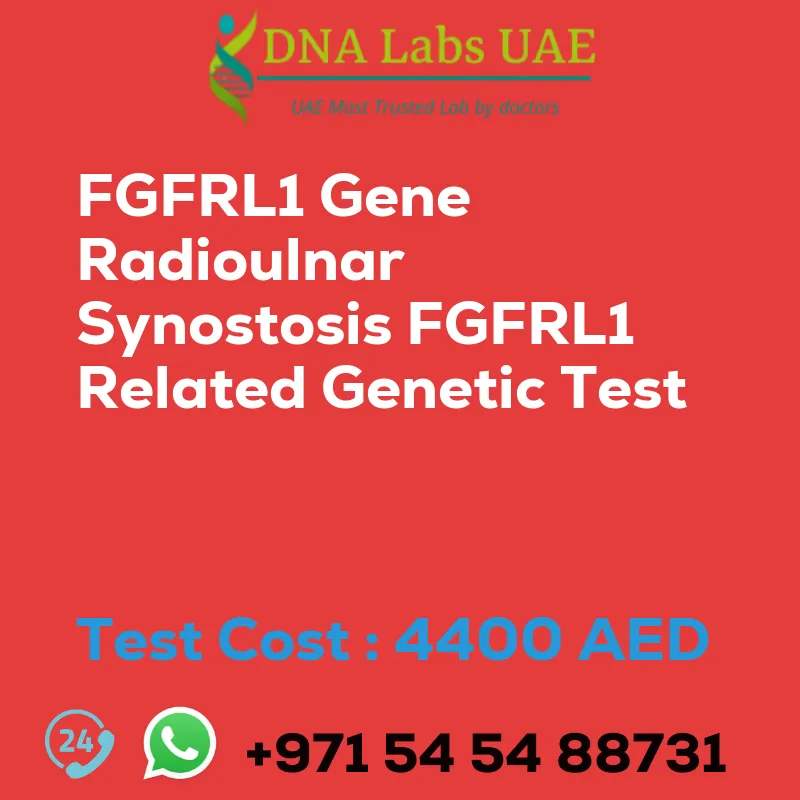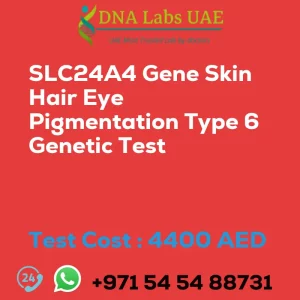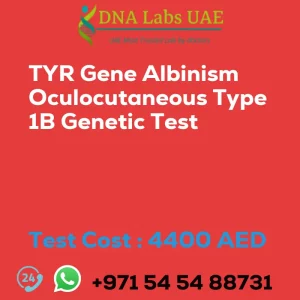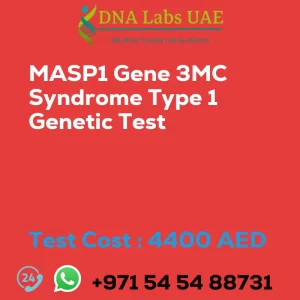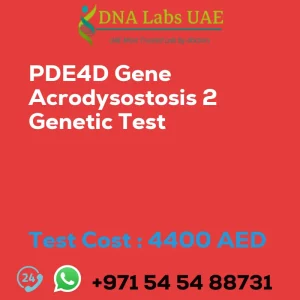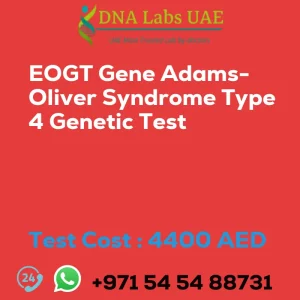FGFRL1 Gene Radioulnar synostosis FGFRL1 related Genetic Test
Welcome to DNA Labs UAE, a leading genetic lab offering advanced genetic testing services. In this blog, we will discuss the FGFRL1 Gene Radioulnar synostosis FGFRL1 related Genetic Test, including its cost, symptoms, diagnosis, and test details.
Test Name: FGFRL1 Gene Radioulnar synostosis FGFRL1 related Genetic Test
Components:
- Price: 4400.0 AED
Sample Condition:
Blood or Extracted DNA or One drop Blood on FTA Card
Report Delivery:
3 to 4 Weeks
Method:
NGS Technology (Next-Generation Sequencing)
Test Type:
Osteology Dermatology Immunology Disorders
Doctor:
Dermatologist
Test Department:
Genetics
Pre Test Information:
Clinical History of Patient who is going for FGFRL1 Gene Radioulnar synostosis, FGFRL1 related NGS Genetic DNA Test. A Genetic Counselling session to draw a pedigree chart of family members affected with FGFRL1 Gene Radioulnar synostosis, FGFRL1 related NGS Genetic DNA Test gene FGFRL1
Test Details:
FGFRL1 Gene Radioulnar synostosis is a genetic condition characterized by the fusion of the radius and ulna bones in the forearm. This fusion restricts the movement of the forearm, leading to limited rotation and pronation/supination. A FGFRL1 related NGS genetic test is a type of genetic test that analyzes the FGFRL1 gene for any mutations or variations that may be associated with Radioulnar synostosis. NGS stands for Next-Generation Sequencing, which is a high-throughput DNA sequencing technology used to rapidly analyze multiple genes simultaneously. By analyzing the FGFRL1 gene, this genetic test can identify any mutations or variations that may be responsible for Radioulnar synostosis. This information can be helpful in diagnosing the condition, understanding its inheritance pattern, and providing appropriate genetic counseling to affected individuals and their families. Genetic testing can also be beneficial in prenatal diagnosis for families with a known FGFRL1 gene mutation, allowing them to make informed decisions about their pregnancy and plan for appropriate medical management. It is important to note that genetic testing should be done under the guidance of a qualified healthcare professional who can interpret the results and provide appropriate counseling and support.
| Test Name | FGFRL1 Gene Radioulnar synostosis FGFRL1 related Genetic Test |
|---|---|
| Components | |
| Price | 4400.0 AED |
| Sample Condition | Blood or Extracted DNA or One drop Blood on FTA Card |
| Report Delivery | 3 to 4 Weeks |
| Method | NGS Technology |
| Test type | Osteology Dermatology Immunology Disorders |
| Doctor | Dermatologist |
| Test Department: | Genetics |
| Pre Test Information | Clinical History of Patient who is going for FGFRL1 Gene Radioulnar synostosis, FGFRL1 related NGS Genetic DNA Test. A Genetic Counselling session to draw a pedigree chart of family members affected with FGFRL1 Gene Radioulnar synostosis, FGFRL1 related NGS Genetic DNA Test gene FGFRL1 |
| Test Details |
FGFRL1 Gene Radioulnar synostosis is a genetic condition characterized by the fusion of the radius and ulna bones in the forearm. This fusion restricts the movement of the forearm, leading to limited rotation and pronation/supination. A FGFRL1 related NGS genetic test is a type of genetic test that analyzes the FGFRL1 gene for any mutations or variations that may be associated with Radioulnar synostosis. NGS stands for Next-Generation Sequencing, which is a high-throughput DNA sequencing technology used to rapidly analyze multiple genes simultaneously. By analyzing the FGFRL1 gene, this genetic test can identify any mutations or variations that may be responsible for Radioulnar synostosis. This information can be helpful in diagnosing the condition, understanding its inheritance pattern, and providing appropriate genetic counseling to affected individuals and their families. Genetic testing can also be beneficial in prenatal diagnosis for families with a known FGFRL1 gene mutation, allowing them to make informed decisions about their pregnancy and plan for appropriate medical management. It is important to note that genetic testing should be done under the guidance of a qualified healthcare professional who can interpret the results and provide appropriate counseling and support. |

